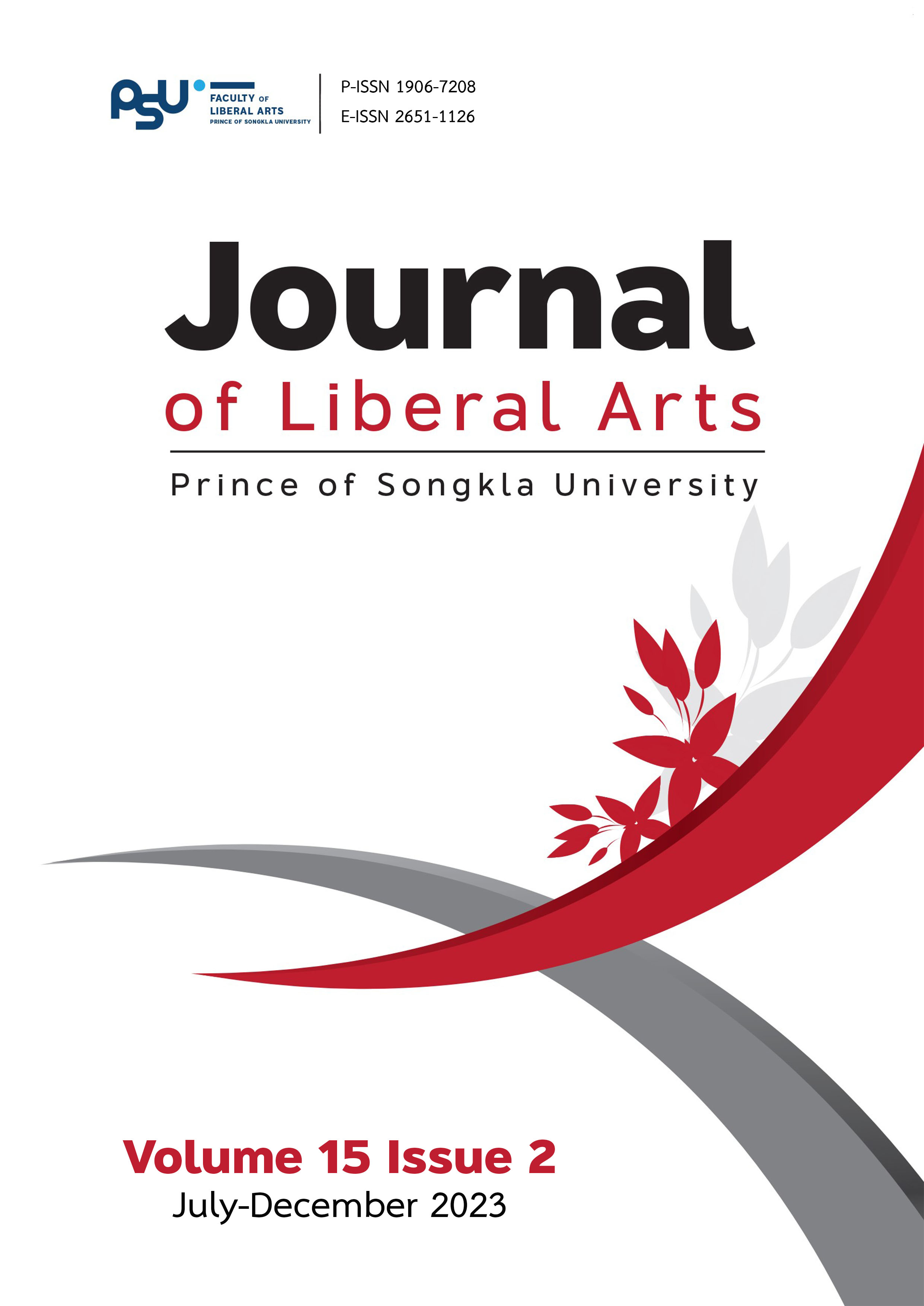A Study on Flight Attendants’ Perceptions Towards Airline Careers: The Effects of COVID-19 Pandemic
DOI:
https://doi.org/10.14456/jlapsu.2023.14Keywords:
perceptions, Thai flight attendants, airline careers, effects of the COVID-19 pandemicAbstract
This study sought to explore the problems experienced by Thai flight attendants and understand how they perceive the careers in airlines based on the problems caused by the COVID-19 pandemic. This study employed a qualitative approach to identify the problems Thai flight attendants experienced during the pandemic and understand how those problems have contributed to their perceptions towards airline careers. Thirty Thai flight attendants both employed and unemployed were selected as participants. To collect in-depth data, the semi-structured individual interview was employed. Thematic analysis was utilised to organise data while interpretive analysis was employed to interpret the data. The findings showed that the participants faced with five main problems; namely, physical and mental health problems, pay and benefit loss, struggles for future plans, job insecurity, and loss of trust in organisations. As influenced by these problems, the findings revealed three different types of perception that the participants had towards airline careers, which were stable, quite stable, and unstable. The study also contributes to the understanding of relationship between the problems and Thai flight attendants’ perceptions and its significance which could be beneficial for both educational and business contexts. For the educational context, educational practitioners might consider including contents regarding impacts of COVID-19 on the airline business in their airline-related courses so that it could benefit students who want to work in this business. For the business, those who work in human resources departments might use the findings of this study in future staff planning and risk management.
References
Amornpipat, I. (2020). Stress of employees working in the aviation industry: A study of Bangkok Airways Limited Ground Service Agents. International Journal of Scientific and Research Publications, 10(08), 441-445.http://dx.doi.org/10.29322/IJSRP.10.08.2020.p10454
Bhattacherjee, A. (2012). Social science research: Principles, methods, and practices. Open University Press.
Charernnit, K. (2021). Flight attendants and emotional intelligence: A case study of Thai Airways flight attendants. E3S Web of Conferences, 244.
Civil Aviation Authority of Thailand. (2016). Guidance material for cabin crew manual (CCM). Caat. Retrieved November 20, 2022, from https://www.caat.or.th/wp-content/uploads/2016/09/ 03_GM_CCM-CAAT.pdf
Creswell, J. W. (2012). Qualitative inquiry and research design: Choosing among five approaches. Sage.
Démuth, A. (2013). Perception theories. Department of Philosophy, Faculty of Philosophy and Arts, Tranava University.
Ford, J., O'Hare, D., & Henderson, R. (2013). Putting the "we" into teamwork: Effects of priming personal or social identity on flight attendants' perceptions of teamwork and communication. Human Factors, 55(3), 499–508.
Ford, J., O'Hare, D., & Henderson, R. (2014). The effects of crew resource management (CRM) training on flight attendants' safety attitudes. Journal of Safety Research, 48, 49-56.
Guest, G., MacQueen, K. M., & Namey, E. E. (2012). Introduction to applied thematic analysis. Applied Thematic Analysis, 3, 20.
Jalilah, A. R. (2010). The lecturers’ perception on ESP course design at non-English Department in Indonesia University of Education [Unpublished master’s thesis]. Universitas Pendidikan Indonesia.
Lange, R. (2020, October 20-23). Senior Vice President at Airbus [Keynote Speech]. AGIFORS 60th Annual Symposium (virtual platform)
Laovoravit, V., Pongpirul, K., Chinswang, I., Janlampoo, P., & Imsombut, A. (2021). COVID-19 on job insecurity and mental health of Thai Airways International flight attendants. Proceedings of the Innovation Aviation & Aerospace Industry International Conference 2021, Chiang Mai,1-7.
Ming, J. B., Liu, H., Li, S., & Ying, L. (2019). The effects of safety attitude and safety climate on flight attendants’ proactive personality with regard to safety behaviors. Journal of Air Transport Management, 78, 80-86.
Munhall, P. (2010). Nursing research: A qualitative perspective. Jones and Bartlett Learning.
Murphy, A. (2013). The flight attendant dilemma: An analysis of communication and sensemaking during in-flight emergencies. Journal of Applied Communication Research, 29, 30–53. https://doi.org/10.1080/00909880128100
O’Connor, P., Flin, R., & Fletcher, G. (2014). Methods used to evaluate the effectiveness of flight crew CRM methods in the UK aviation industry. Human Factors and Aerospace Safety,2, 235–255.
Thongmeensuk S., & Rojsirikulchai, T. (2020). Impact of the COVID-19 pandemic on the air transport industry, with particular focus on Thailand. TDRI(Quarterly), 35(3). 3-15.
Downloads
Published
How to Cite
Issue
Section
License
Copyright (c) 2023 Bair Pittpunt

This work is licensed under a Creative Commons Attribution-NonCommercial-NoDerivatives 4.0 International License.
The authors retain the copyright to their article but the Journal of Liberal Arts, Prince of Songkla University reserves the exclusive rights to first publication.






